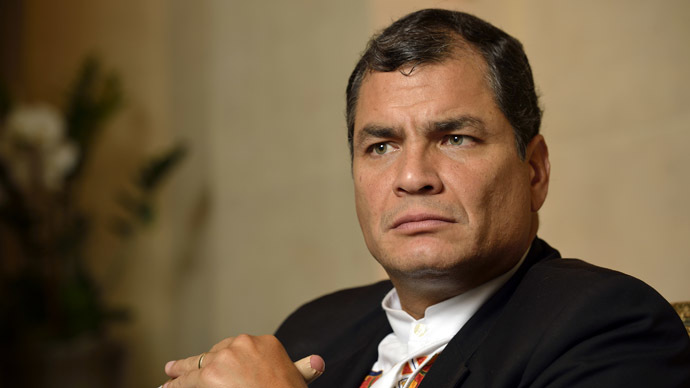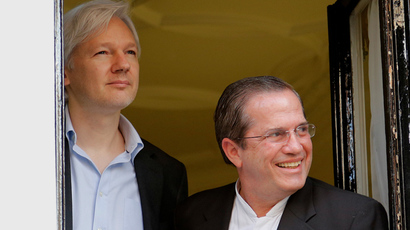‘Mutual distrust’: Ecuador ejects US military group

Ecuador has given a group of 20 US Defense Department employees until the end of the month to quit the country. President Rafael Correa had previously said the presence of the US military in Ecuador was “scandalous” and they had “infiltrated all sectors.”
Ecuador has officially requested that all 20 Defense Department employees in the US Embassy in Quito cease their activities and leave the country by the end of the month, embassy spokesman Jeffrey Weinshenker confirmed to AP. He said the embassy had received a formal letter dated April 7, alerting them to the imminent expulsion of the group.
Previously, Correa attacked the US’s military presence in the Latin American country, claiming there were even more operatives.
“There are about 50 of them. Who can justify this? We are now taking action accordingly,” he said in January, pledging to have them removed from the country. He added that these operatives had infiltrated all sectors of the Ecuadorian political sphere, referring to their presence as “scandalous.”
Correa said that such activities have led to a climate of “tensions and mutual distrust” between the two countries.
Weinshenker has defended the US presence in Ecuador, maintaining that all the activities the military personnel carry out have to be approved by Ecuadorian officials. He also mentioned that Washington had donated around $7 million to the Ecuadorian government to aid in the fight against terrorism, drug trafficking and human trafficking.
Relations between Washington and Quito have deteriorated over the past few years. The Ecuadorian government ejected US Ambassador Heather Hodges in 2011 after WikiLeaks released a document in which she alleged that corruption in the Ecuadorian police was widespread.
In addition, tensions rose between the two countries when WikiLeaks founder Julian Assange was granted political asylum by Ecuador. Assange released a trove of classified American documents into the public sphere via the website WikiLeaks, prompting Washington to accuse him of aiding terrorists.
Although the whistleblower was granted asylum, he has been holed up in the Ecuadorian Embassy in London for the past three years. The UK authorities have pledged to arrest Assange should he set foot outside the embassy building and extradite him to Sweden where he is wanted for questioning over accusations of sexual assault.
Assange fears the Swedish authorities will hand him over to the US for questioning over the leaks.














